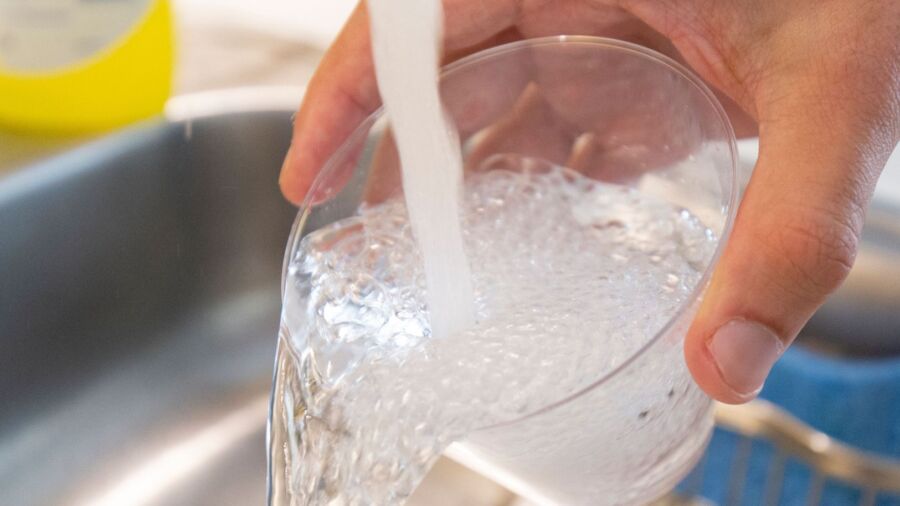A newly published study has found that fluoride might not be as effective as it was in the past, after a federal judge last month ruled that a U.S. agency must take actions to weigh possible risks posed by the compound to children’s IQs.
Published in the Cochrane Library on Oct. 4, a paper produced by researchers with the universities of Aberdeen, Dundee, and Manchester in the United Kingdom reviewed data from 157 studies comparing communities that had water fluoridation and those that had no additional fluoride put in their water.
For decades, scientists as well as medical and dental associations have said that fluoridation can reduce tooth decay, with the addition of the compound being one of the greatest medical-related achievements of the 20th century.
But since the 1970s, according to the researchers, the benefit of adding fluoride has declined as fluoride-added toothpaste became more commonplace.
“The evidence suggests that water fluoridation may slightly reduce tooth decay in children,” study co-author Dr. Lucy O’Malley, with the University of Manchester, in news release. “Given that the benefit has reduced over time, before introducing a new fluoridation scheme, careful thought needs to be given to costs, acceptability, feasibility, and ongoing monitoring.”
Studies conducted after 1975 suggest that adding fluoride to drinking water could lead to slightly less tooth decay in the baby teeth of children, the researchers noted.
“Analysis of these studies, covering a total of 2,908 children in the UK and Australia, estimates that fluoridation may lead to an average of 0.24 fewer decayed baby teeth per child,” said the news release. “However, the estimate of effect comes with uncertainty, meaning it’s possible that the more recent schemes have no benefit. By comparison, an analysis of studies with 5,708 children conducted in 1975 or earlier estimated that fluoridation reduced the number of decayed baby teeth, on average by 2.1 per child.”
The same studies—the ones published after 1975—found that adding fluoride to water could “increase the number of children with no tooth decay by 3 percentage points” but “with the possibility of no benefit.”
“When interpreting the evidence, it is important to think about the wider context and how society and health have changed over time,” study co-author Anne-Marie Glenny, with the University of Manchester, said in the release. “Most of the studies on water fluoridation are over 50 years old, before the availability of fluoride toothpaste. Contemporary studies give us a more relevant picture of what the benefits are now.”
The paper’s findings will likely add more pressure on governments to potentially re-evaluate the practice of adding fluoride to tap water, which became commonplace in the 1940s.
The American Dental Association (ADA) has long recommended adding fluoride to water at 0.7 milligrams per liter—the current level prompted by the U.S. Centers for Disease Control and Prevention—because of the compound’s ability to reduce tooth decay in children.
In late September, U.S. District Judge Edward Chen ordered the U.S. Environmental Protection Agency (EPA) to address whether fluoride poses a risk to children’s IQ, although he noted it isn’t certain it poses such a risk.
“If there is an insufficient margin, then the chemical poses a risk,” Chen wrote. “Simply put, the risk to health at exposure levels in United States drinking water is sufficiently high to trigger regulatory response by the EPA” under federal law.
At least three municipalities have said they will move to suspend water fluoridation in the wake of Chen’s ruling. They include two in New York’s Westchester County and the Texas city of Abilene.
“With potential changes to EPA regulations, such as potential adjustments to fluoride levels or the possible introduction of warning labels, the City is pausing fluoridation to ensure compliance with any new health and safety guidelines that may emerge,” a release from the City of Abilene said. “This temporary suspension is being implemented out of an abundance of caution to safeguard public health.”
After Chen’s ruling, the ADA said it still backs adding fluoride to drinking water and that Chen’s ruling “provides no scientific basis for the ADA to change its endorsement of community water fluoridation as safe and beneficial to oral health.”
A spokesman for EPA told The Epoch Times last week that the agency is reviewing the judge’s decision.
From The Epoch Times

